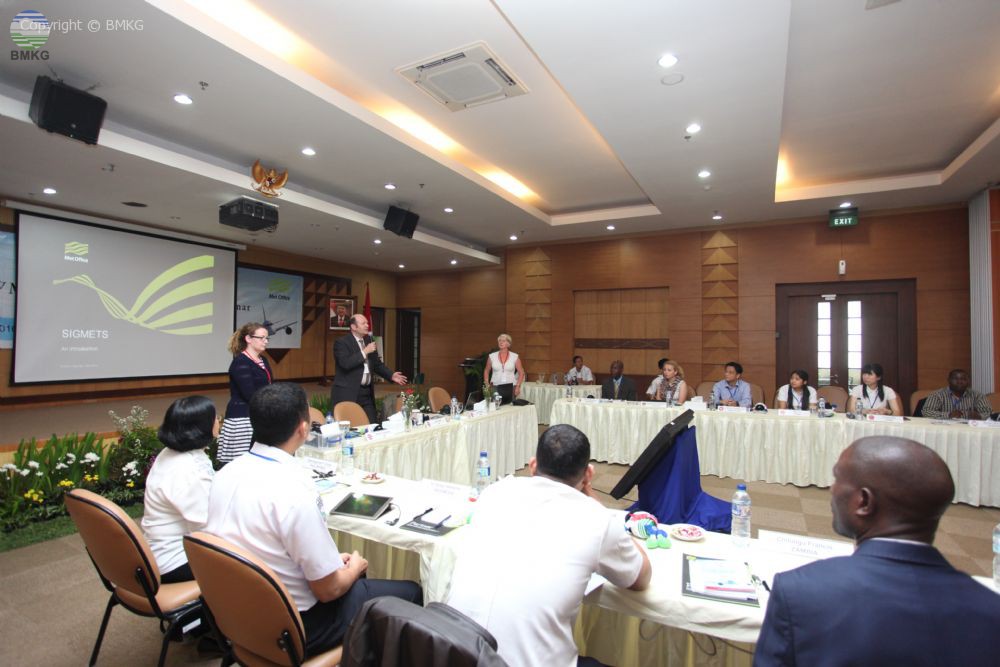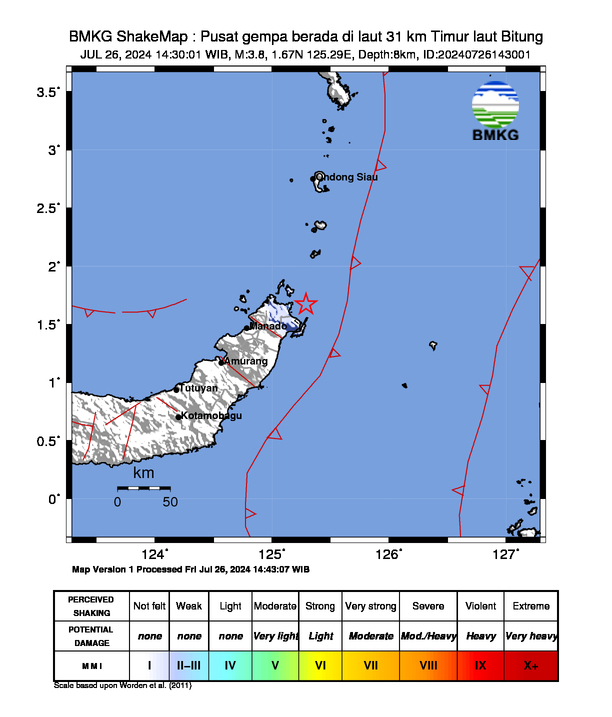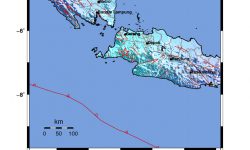WMO / UKMO AVIATION SEMINAR - Republic of Indonesia
- Rozar Putratama
- 26 Sep 2016

The importance of aviation safety is often taken by granted, and concerns on aspects of safety are recognized when horrific accidents occur. But on daily basis, on thousands of commercial or military flights, the lives of countless passengers depend on the implementation of safety regulations adopted to protect the public's interest. The implication of aviation safety not only secures the lives of people whose travel through the air, but ensures the safety of everyone on the ground as well. An airplane crash into a large metropolitan area that is densely populated would surely result in countless ground fatalities, and in retrospect it is noticeable that those types of incidents are so few in number.
In terms of the economy, the importance of aviation safety is staggering, and is understood by the general public. With each air traffic accident, a segment of the public maybe more hesitant to fly, resulting in a loss of revenue to the airline industry. Approximately 40 percent of all tourists travel by air, so a small decline in this area due to safety concerns can easily result in losses of hundreds of millions dollars. For this reason only, aviation safety is of equal importance to every country.
The collaboration among stakeholders, including meteorology, in the aviation industry is the key to creating more safety in aviation. ICAO safety report 2015 shows that the year-over-year accident statistics indicate a decrease in the overall number of accidents as well as the accident rate. The global accident rate involving scheduled commercial operations decreased by 7%, from 3.0 accidents per million departures in 2014 to 2.8 accidents per million departures in 2015. The 474 fatalities in 2015 represent a substantial decrease from the 904 fatalities in 2014.
On May 4th 2016, Etihad Airways EY-474 from Abu Dhabi to Jakarta experienced severe turbulence causing 31 passengers to suffer injuries. The following three days, on May 7th 2016, the same turbulence phenomenon occurred to Hong Kong Airlines HX-6704 from Denpasar to Hong Kong.
The high frequency of meteorological hazards such as organized convective storms, turbulences, tropical cyclones and in addition, a large number of active volcanoes become specific challenges to meteorological service providers. Meteorological technology and human resources capacities should be strengthened to improve the aeronautical meteorological services as a contribution to the aviation safety, regularity and efficiency.
That's why, in collaboration with WMO and UK Met Office, the Agency for Meteorology, Climatology and Geophysics of the Republic of Indonesia (BMKG) hosted "WMO/UKMO Aviation Seminar on Aviation Hazard and Sigmet". This seminar invited at least 20 developing countries and was held in BMKG Headquarters, Jakarta, Indonesia, from 26 - 30 September 2016.
"Technological improvement has led to a decline in major air disasters, less catastrophic accidents and a whole range of incidents occur more frequently. Despite rapid gains in technology, humans are ultimately responsible for ensuring the aviation safety. Minor human error caused by poor procedures or miscommunication can result in catastrophic events. Human resources related to aviation operational must continue to be knowledgeable, flexible, dedicated and efficient while exercising good judgment" according to Dr. Andi Eka Sakya, Director General of BMKG during the opening ceremony of the seminar.
This statement also echoed by John Ward, the invited speaker from UK Met Office,
"WMO Aviation Seminar is a part of UK's contribution to Aviation Safety and this is an annual event. With this seminar, we hope we could provide students with the necessary skill and competencies that WMO promote for aviation forecaster".The main focus on this year's seminar is the weakness in issuing of Sigmet and to promote the competencies standard of the participants in providing meteorological services for aviation. (kd)
Related Posts
Latest Earthquake
- 26 Juli 2024, 14:30:01 WIB
- 3.8
- 8 km
- 1.67 LU - 125.29 BT
- Pusat gempa berada di laut 31 km Timur laut Bitung
- Felt (MMI Scale): III Bitung
- Read More →
- Pusat gempa berada di laut 31 km Timur laut Bitung
- Felt (MMI Scale): III Bitung
- Read More →
Press Release

d
- 19 Jun 2024








